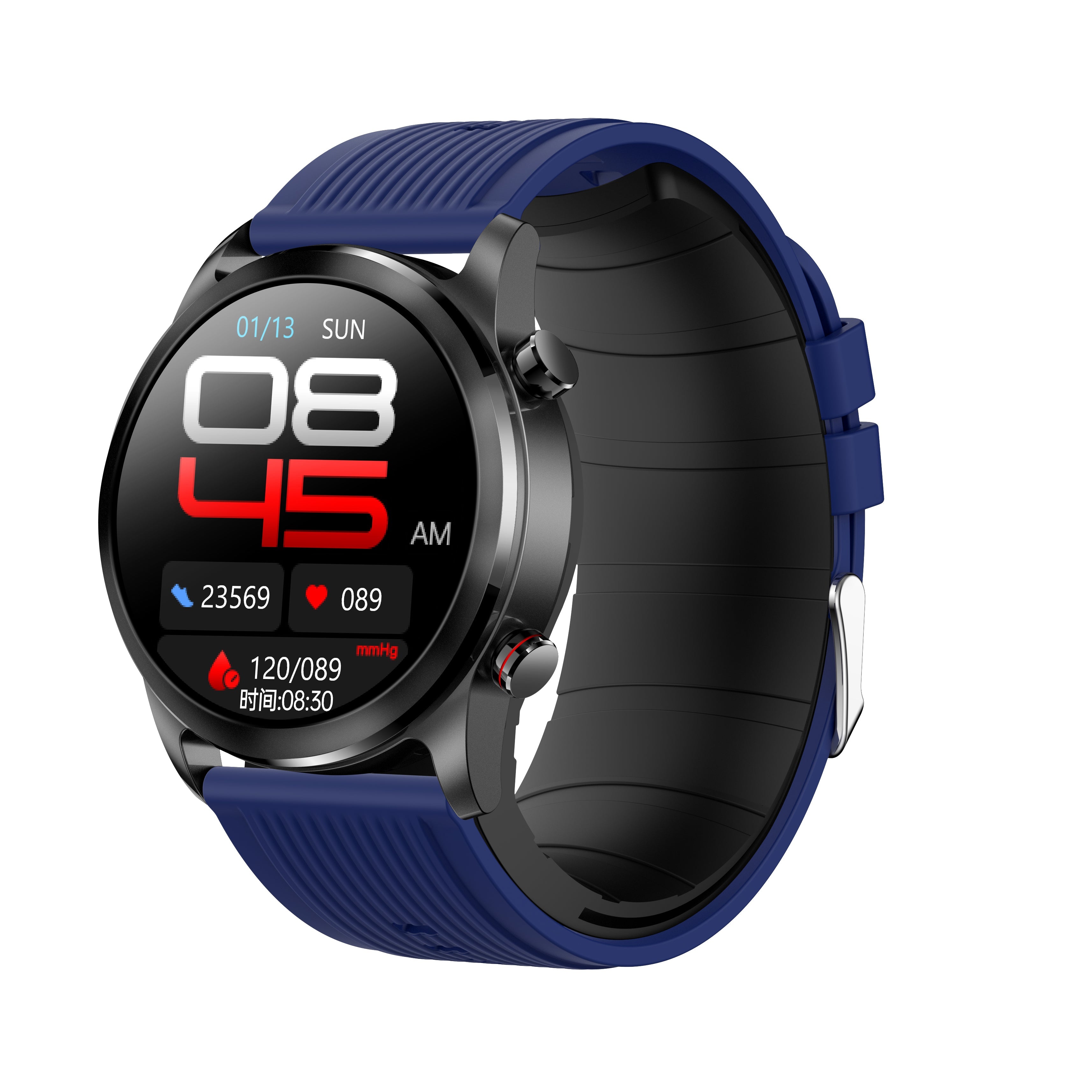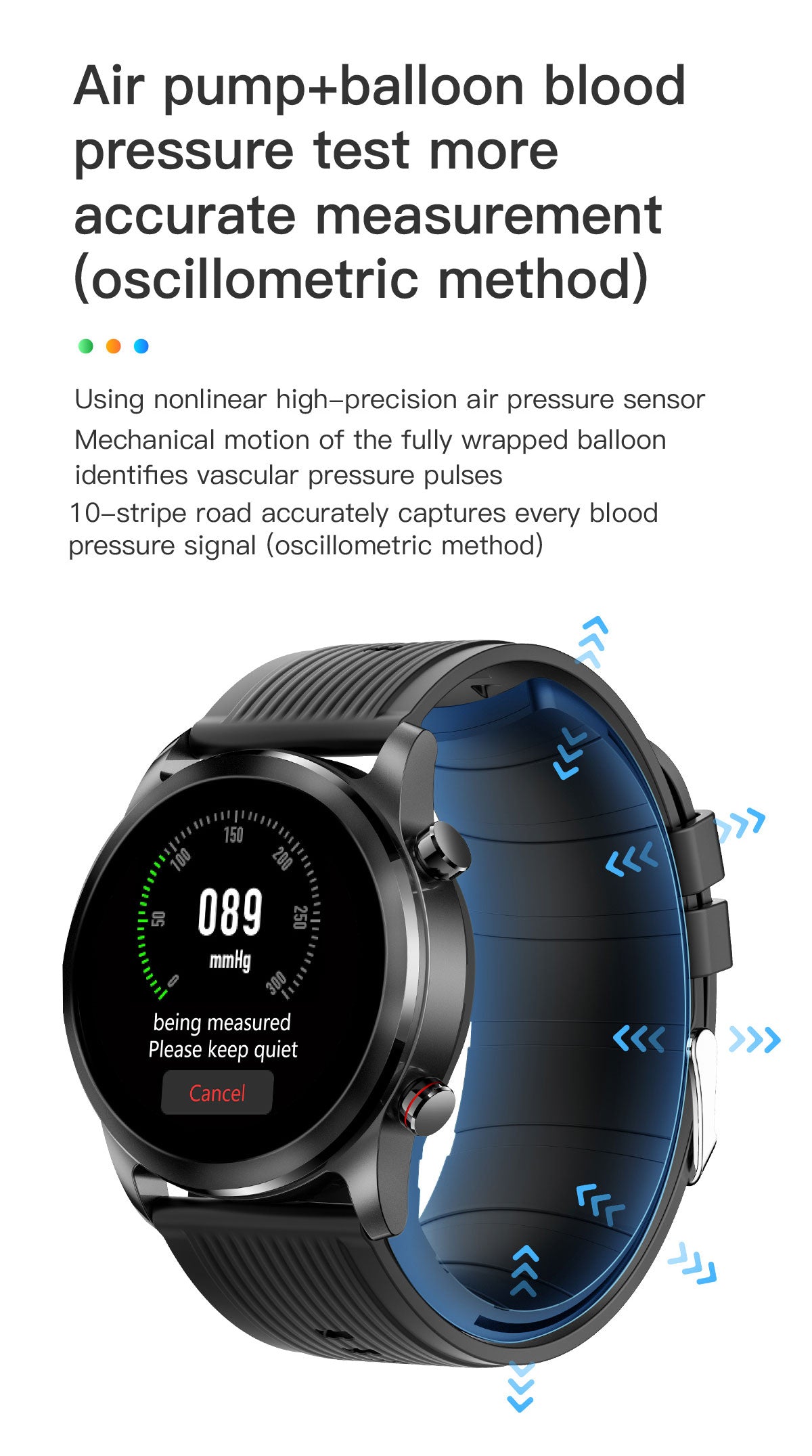Smart Watch Blood Pressure
In the hustle and bustle of modern life, stress has become an almost ubiquitous companion. Beyond the emotional toll, stress can significantly impact our physical health, particularly our heart rate. This blog post explores the intricate relationship between stress and heart rate, unraveling the physiological connections that occur during stressful situations. Additionally, we'll delve into effective strategies to lower heart rate after experiencing stress, promoting overall cardiovascular well-being.
Stress and Heart Rate: A Symbiotic Dance
-
The Fight or Flight Response: When faced with stress, our bodies activate the "fight or flight" response. This evolutionary mechanism triggers the release of stress hormones like cortisol and adrenaline, elevating heart rate and redirecting blood flow to vital organs to prepare for a perceived threat.
-
Chronic Stress and Its Toll: Prolonged exposure to stress can lead to chronic activation of the fight or flight response, causing sustained increases in heart rate. Over time, this can contribute to cardiovascular issues, including high blood pressure and an increased risk of heart disease.
Strategies for Lowering Heart Rate After Stress:
-
Deep Breathing Exercises: Engage in deep breathing exercises to activate the body's relaxation response. Slow, deep breaths can help regulate the autonomic nervous system, calming the stress-induced surge in heart rate.
-
Physical Activity: Moderate physical activity, such as walking or gentle stretching, is an effective way to dissipate excess energy and lower heart rate. Exercise promotes the release of endorphins, the body's natural mood enhancers.
-
Mindfulness Meditation: Incorporate mindfulness meditation into your routine to cultivate a calm and focused mind. Mindful practices can regulate heart rate variability, a key indicator of cardiovascular health.
-
Hydration and Nutrition: Stay hydrated and maintain a balanced diet. Dehydration can strain the cardiovascular system, while nutritious foods support overall heart health.
-
Quality Sleep: Prioritize sufficient and quality sleep. Lack of sleep can elevate stress levels and heart rate, making it crucial to establish healthy sleep patterns.
-
Connect with Nature: Spending time in nature has been linked to reduced stress levels. Whether it's a walk in the park or simply sitting in a green space, connecting with nature can have a calming effect on the heart.
Understanding the intricate dance between stress and heart rate empowers us to take proactive steps towards better cardiovascular health. By incorporating simple yet effective strategies into our daily lives, we can counteract the physiological effects of stress, promoting a harmonious balance between mind and heart. So, as life presents its challenges, let these insights guide you towards a heart that beats with resilience, even in the face of stress.
BP Doctor Pro 13 is a great blood pressure and heart rate monitoring tool. It uses a skin-friendly silicone pressurized air bag that can be freely bent and adjusted to simulate the inflation and deflation modes of a traditional blood pressure monitor, making blood pressure measurement more accurate. The back case of the watch has a built-in optical heart rate sensor, which fits closely with the wrist when worn. Continuously monitor your heart rate 24 hours a day to keep an eye on your heart rate changes.










